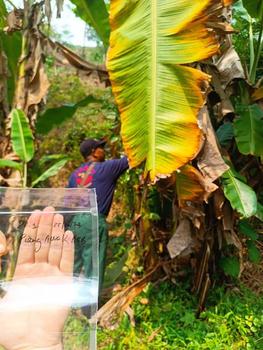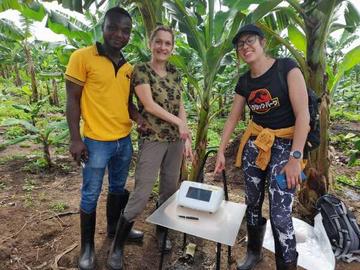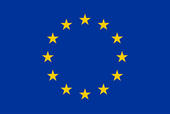INDICANTS : INnovative DIagnostiCs for bANana paThogens Surveillance
Last update: 28 February 2024
Context and challenges
Theats to plants by invasive pathogens are increasing worldwide as a result of globalization, human mobility, climate change, and pathogen or vector evolution. Damages caused by emerging or re-emerging plant pathogens have a significant potential for economic losses. Efficient plant disease management requires disease identification through surveillance and the availability of efficient diagnostic tests to detect the causal agent. Inaccurate diagnosis of pathogens can have a dramatic economic impact if it leads to the introduction of unwanted pathogens into an unaffected area or, conversely, if it leads to the application of inappropriate and expensive disease management strategies. These diagnostic tools enable monitoring at various levels: evaluation of planting material, border control, and territory surveillance. These diagnostic tools must provide a rapid response for the timely implementation of control and containment measures to prevent the spread of pathogens.
Banana is the world's most important fruit crop in terms of production volume (over 114 million tons) and trade. It is cultivated in more than 130 countries, mainly in tropical and subtropical regions, where approximately four hundred million people depend on this crop as a staple food and source of income. In the USA and Europe, bananas are among the top 5 most consumed fruits. The overall banana production faces various pests and diseases responsible for crop losses and a yield decrease, seriously compromising the food security and livelihoods of banana-dependent farming households.
One main objective: to develop innovative diagnostic tools that are both rapid and easy to use
The main objective of the INDICANTS research project (INnovative DIagnostiCs for bANana paThogens Surveillance) is to develop innovative molecular tools for rapid on-field diagnosis of four vascular diseases in bananas: fusarium wilt caused by the phytopathogenic fungus Fusarium oxysporum f. sp. cubense (FOC TR4), bacterial wilt of banana (Xanthomonas vasicola pv. musacearum = BXW), Moko disease (MOKO), and banana blood disease (BDB) caused by the bacteria Ralstonia solanacearum and Ralstonia syzygii subsp. celebesensis, respectively.
To base diagnosis of these diseases solely on symptomatology is not reliable because some symptoms are common to vascular infection diseases (i.e yellowing and wilting) and in certain conditions may result in misdiagnosis. There is a need for specific and sensitive diagnosis protocols operating in site and easy to use for non-experimented personal.
Two types of point-of-care (POC) methods will be developed during this project:
- LAMP (Loop-mediated isothermal amplification) detection kits for the diagnosis of the four pathogens.
- An emerging technology (CRISPR/Cas12a) for the diagnosis of FocTR4.
This technological development will be accompanied by:
- The development of a simplified DNA extraction method that allows on-field implementation of the two POC methods mentioned above.
- The establishment of an inter-laboratory test among different plant health laboratories to transfer protocols and test their reproducibility.
- Evaluation of these molecular tools directly in the field, in different regions of Africa (Mozambique and Uganda), Asia, and the Caribbean.
- The transfer of protocols to an industrial partner (Qualiplante) for the production of "ready-to-use" diagnostic kits.
Information and training activities on the LAMP technique and different diseases will also be provided to various partners in the visited countries.
In addition to scientific publications and conferences, the obtained results will be disseminated to different audiences, including the general public (press, scientific events), plant health stakeholders (workshops), master's students (courses), and schools.
This project is funded by the European Union under the Horizon 2020 research and innovation program (2014-2020) - EXCELLENT SCIENCE - Marie Skłodowska-Curie Actions under agreement n° 890856 .
Author: Isabelle Robène (Cirad)
Last update: 28 February 2024



